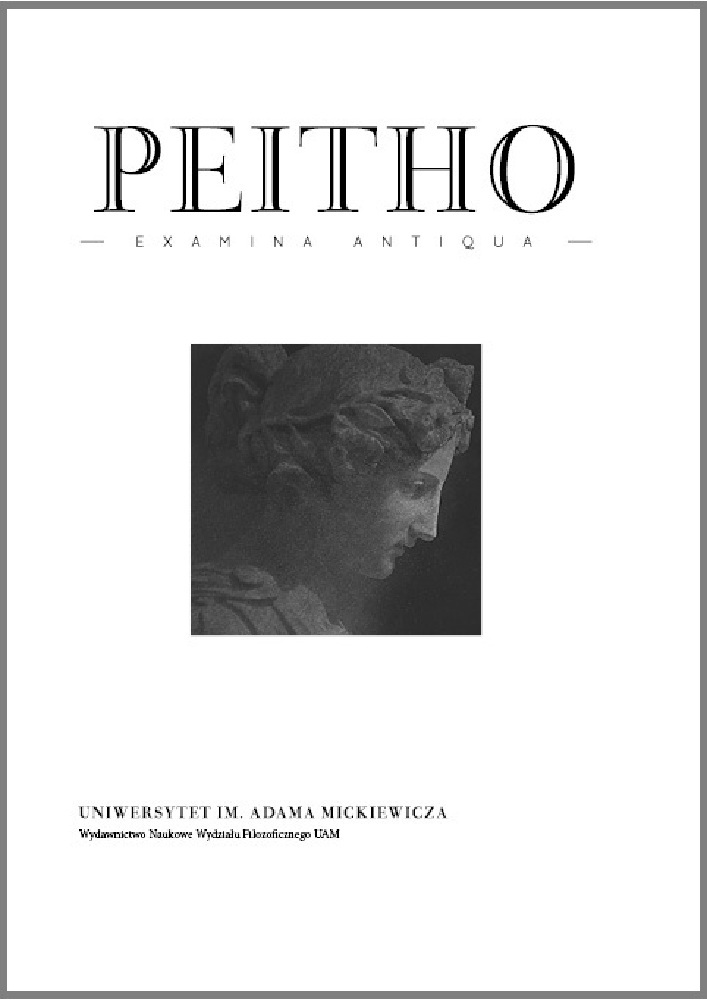Abstract
This article examines the concept of Byzantinism that Julien Benda employed in his book La France Byzantine. In the fin-de-siècle European sensibility, Byzantinism was transferred from political to literary level, but Benda created an epistemological break when he asserted in his book that Byzantinism is literature in its normal function. Furthermore, of Byzantinist character is especially the modern literature (e.g. Valéry or Mallarmé). Thus, labeling modern literati as Byzantinist writers served as a critical tool for Benda, who condemned the degradation of modern intellectuals into clerks. This transformation of literary normality affected also pure thought as is manifested in the ambiguous manner of expressing their ideas by modern thinkers (this being a mixture of idealism and apocryphal thinking, which renders ideas rather abstractions than instruments of rationality). An example of such a Byzantinist use can be found in the manner Emmanuel Levinas exploited Husserl’s phenomenology. Finally, Benda engaged in a discussion with Paulhan’s view that literary philosophy is a form of critical terror. The position of Benda is that of a rationalist, whereas Paulhan is a thinker who focuses on the use of language. For Constantine Tsatsos (1899–1987), on the other hand, a Greek philosopher and author of a philosophical novel entitled Dialogues in a Monastery (1974), the Byzantine moment is a part of great continuity of Greek culture, which is characterized by various structures in its period of long duration. One of these is the synthesis of Hellenism and Christianity that can be seen in Byzantium, where the transposition of the philosophical (Platonic) Eros to the mystical one plays a major role. This development is of paramount importance not only for the whole European culture but also for all questions of beauty and morality. The present paper concludes with a brief discussion of Richard Rorty’s account of pragmatic reason, which makes it possible to show how contemporary philosophy can be placed in the context of the debate about Byzantinism.
References
Arabatzis, G., 1999–2000, «La théorie de l’imaginaire chez le premier Sartre: L’imagination – L’imaginaire – La nausée», Annales d’esthétique 39–40, pp. 111–126.
Begzos, M. P., 1994, «Η φιλοσοφία της θρησκείας στην Ελλάδα (1916–1986). Σύντομη ιστορικοκριτική επισκόπηση», in: K. Voudouris (ed.), Νεοελληνική Φιλοσοφία. 1600–1950, Thessalonique, pp. 77–95.
Benda, J., 1945, La France Byzantine ou le triomphe de la littérature pure, Paris.
Berlin, I., 2013, The Roots of Romanticism, Princeton.
Delouis, O., 2003, «Byzance sur la scène littéraire française (1870–1920)», in : M.-Fr. Auzépy (ed.), Byzance en Europe, Saint-Denis, pp. 101–151.
Hass, D., 1996, Le problème religieux dans l’oeuvre de Cavafy. Les années de formation (1882–1905), Paris.
Jenkins, R. J. H., 1963, «The Hellenistic origins of Byzantine literature», Dumbarton Oaks Papers 17, pp. 37–52.
Karassis, M. D., 2006, «Παναγιώτης Κανελλόπουλος-Κωνσταντίνος Τσάτσος. Συγκλίσεις και αποκλίσεις», Φιλοσοφία 36, pp. 41–42.
Paulhan, J., 1990, Les fleurs de Tarbes ou la Terreur dans les Lettres (1941), Paris.
Rorty, R., 2007, «Grandeur, Profundity and Finitude», in: R. Rorty, Philosophy as Cultural Politics. Philosophical Papers IV, Cambridge, pp. 73–88.
Starr, C. G., 1992, The Aristocratic Temper of Greek Civilization, Oxford.
Tsatsos, C., 1962, «Αι αντινομίαι του Πρακτικού Λόγου», Athènes (répris in M. Karassis (ed.), Μελέται Φιλοσοφίας του Δικαίου, Athènes 2008, pp. 389–407).
Tsatsos, C., 1976, Dialogues au Monastère, trad. française O. Merlier, Paris.
Tsatsos, C., 1978, Το πρόβλημα της ερμηνείας του δικαίου, IIe édition, Athènes.
Tsatsos, C., 1981, Θεωρία της Τέχνης, Athènes.
Tsatsos, C., 2000, Λογοδοσία μιας ζωής, vol. II, Athènes.
License
Peitho provides immediate open access to its content on the principle that making research freely available to the public supports a greater global exchange of knowledge.
